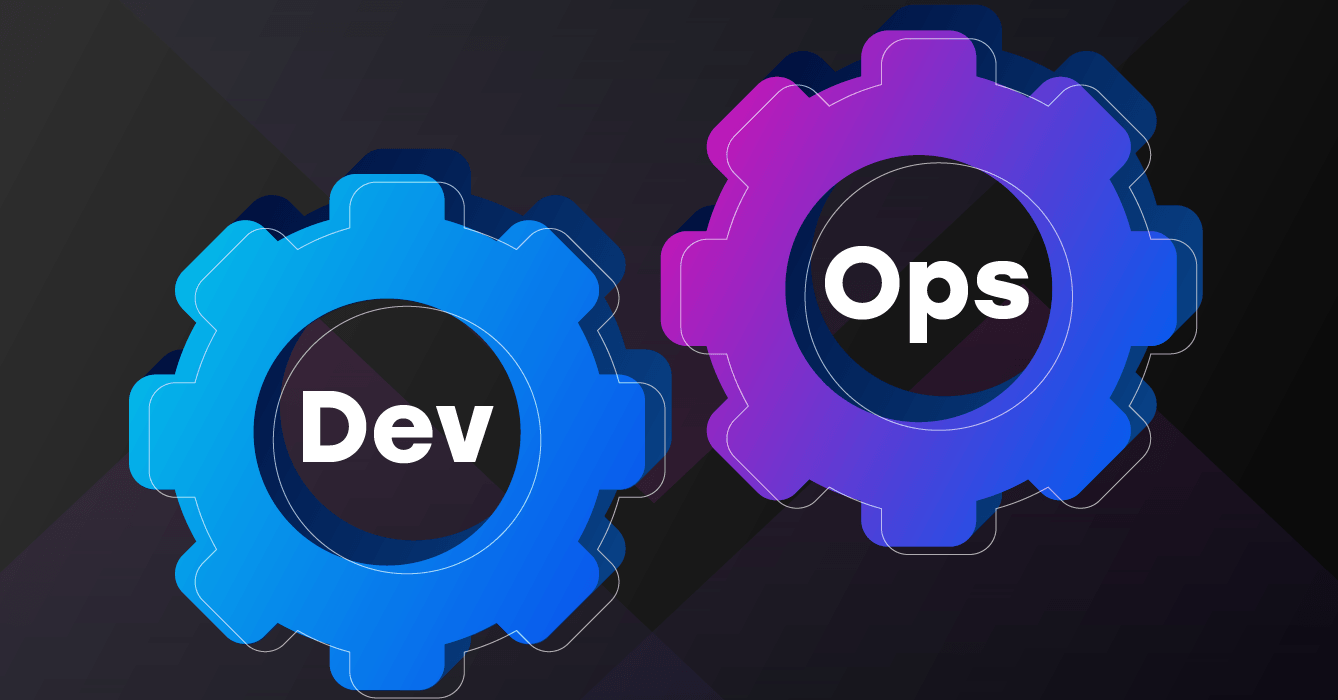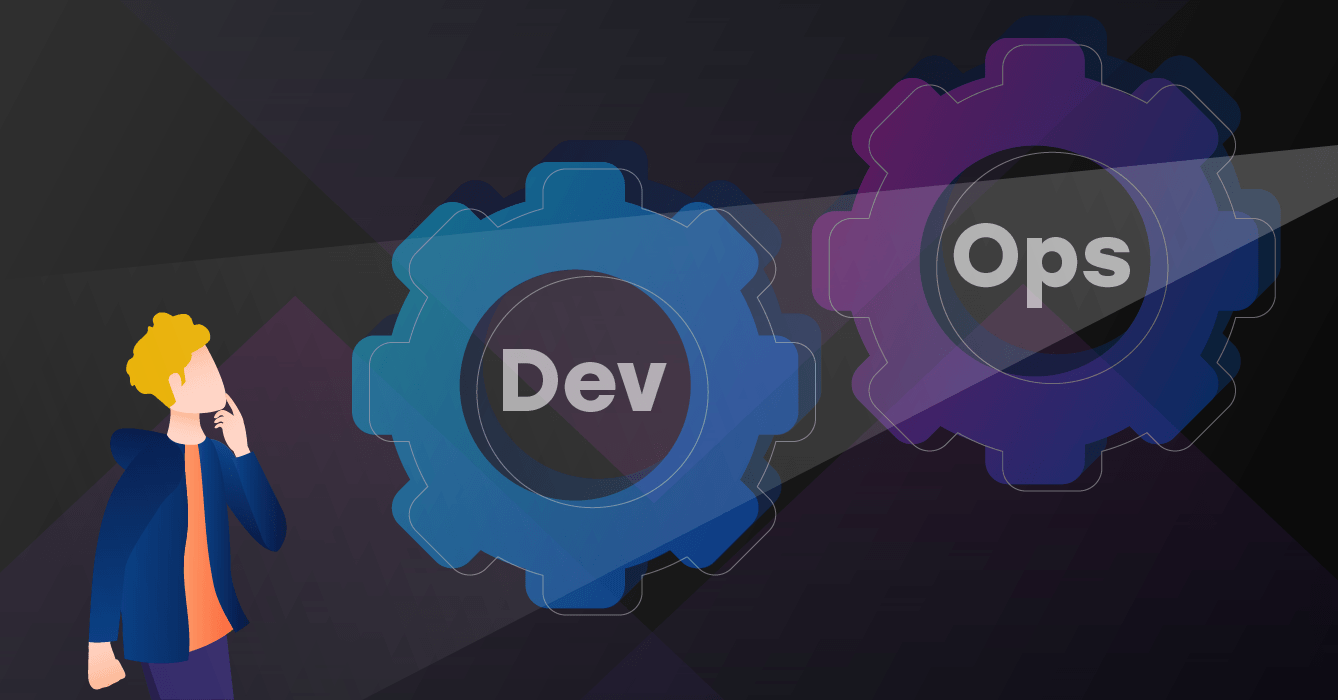DevOps Business Value and Advantages
The very same advantages that software development experiences with DevOps can be applied to other industries.
Join the DZone community and get the full member experience.
Join For Free2018 was proclaimed the year of enterprise DevOps by Forrester, as more than 50% of enterprises worldwide have already done their DevOps transformation or are in the process of it. Thus said, the demand for DevOps services surges worldwide, while many businesses are still not sure what is DevOps business value and what advantages it can provide to their company. We will explain this below, with some examples of how DevOps helps companies across various industries succeed.

First of all, what is DevOps? DevOps is a complex phenomenon of transformative methodology, culture, innovation, and technology, aimed at organizing your workflows to achieve ever-growing speed and cost-efficiency of operations and drive more value to your customers.
- DevOps methodology of software delivery is centered at automating the routine IT operations throughout the code development process and combining Dev and Ops workflows across the whole software lifecycle, from design to release to production support.
- DevOps culture emphasizes communication and collaboration, as opposed to siloing tasks, tools, skills, and responsibilities. Devs and Ops plan the future app architecture and IT infrastructure together, so it's "You built it, you run it," not the "Throw the code over the wall" paradigm.
- DevOps innovative technologies enable and make use of things like serverless computing (AWS Lambda, Azure Functions, etc), managed Kubernetes-as-a-Service (ECS, Kubernetes Engine, AWS Fargate, etc.), blockchain infrastructure, distributed databases, prescriptive and predictive Big Data analytics, edge computing for the IoT, AI, ML, OCR, self-healing infrastructure, and other cutting-edge tech.
How can all of this help you and what are business benefits of DevOps?

DevOps Business Value
In short, implementing DevOps best practices and workflows helps the businesses save time and money, increase software lifecycle predictability, build a corporate culture around innovation and keep motivation levels high. We will highlight it in the details below.
DevOps Helps Save Time and Money
Quite a few of IT operations are routine and repetitive tasks. Most of them can be automated using scripts, but if the scenario differs, the script fails — and the scenarios in production vary quite a lot. Implementing DevOps principles of IaC, CI, and CD help ensure the uniformity of task scenarios and infrastructure immutability, so automation becomes 100% efficient and helps greatly reduce the amount of time and effort spent on routine and repetitive tasks.
DevOps Increases Software Lifecycle Predictability
How many times have you witnessed the projects delayed due to "critical bugs that were discovered just before the release" or the last-moment need to implement some security checks? It was a sad reality that hampered the software delivery for decades before the DevOps paradigm was introduced.
Now, security checks are incorporated in the automated unit and integrity testing from the very start and the code is written in short chunks that are constantly integrated into the main project trunk, instead of building long branches that fail to merge later down the track. Thus said, working under DevOps methodology drastically decreases the possibility of last-minute issues and greatly improves the predictability and outcomes of the software development projects.
DevOps Helps Build a Corporate Culture of Innovation
Improvement and innovation are impossible without experimentation. However, when system reconfiguration is a long and effort-consuming task and somebody has to pay for this time — the cost of error is too high. This is a standard problem for many legacy infrastructures — they are full of dark areas nobody dares to venture to and it is impossible to correct or improve what happens there, so everyone just prays nothing breaks. When your error can cost you a job — you would think twice before even suggesting changing something.
DevOps engineers run virtualized infrastructures, where servers are treated like cattle, not pets. They can be provisioned, run and shut down in a matter of seconds, with the costs that are literally close to none, as compared to lengthy manual configuration. Thus said, the cost of error is negligible, and the failure of some idea is not someone's fault — it is merely an indicator that the system can be improved.
Therefore, at the end of the day, DevOps engineers don't ask, "Who suggested this nightmare and how do we sort it out?" Instead, they ask, "What did we learn today and how do we improve the system to avoid such fails in the future?" DevOps culture cherishes creativity and experimentation — and does not seek the ways to attach guilt to someone.
DevOps Culture Helps Staff Stay Motivated
It is a logical conclusion of the part above — when you are free to experiment and try something new with literally zero negative consequences (as the testing and staging systems are deployed in seconds and at literally no cost) — you are free to create.
Developers are motivated to write clean code, instead of taking shortcuts that later form the technical debt.
Specialists are always eager to learn something new and play with the latest versions of tools they use, in order to find new ways to improve the product and their workflows. The teams are able to accumulate and share lots of experience quickly, so the specialists grow professionally very quickly, instead of being stuck with the same processes and tools for years, stagnating and losing motivation.

Who are DevOps Business Drivers for Various Industries?
DevOps principles, workflows, and best practices can be applied in various industries and provide great results for any business, large and small. However, decisions like DevOps transformation cannot be made singlehandedly by a company CEO. The CTO, CIO, and VP of engineering should also have a say in this matter, as the process of DevOps implementation spans across multiple departments and influences all the workflows in the company. Below we list DevOps business benefits for eCommerce, travel, finances, insurance, and healthcare, to name a few.
DevOps Benefits for Travel Companies
The travel industry has to adapt to a rapidly changing business landscape and provide services through mobile apps and using web APIs to contact various registries in order to serve their customers' requests. Many businesses have to do it using outdated infrastructures and are steadily losing the competition, so the timely transition to DevOps methodology of infrastructure management and software delivery might make the difference between the long-term success of your business and bankruptcy after losing the race to more technologically savvy competitors.
DevOps tools and practices help travel companies build efficient technological solutions faster and optimize their workflows to deliver more value to their customers. Adopting the latest technology quickly provides a competitive edge needed to secure the leading positions in their market segment.
DevOps Advantages for eCommerce
eCommerce companies operate online and have to use the latest technology to remain competitive. They have to store and process huge volumes of data, enable swift queries through them, maintain database integrity and security, provide personalization to their customers, etc. A decade ago that required choosing between employing huge teams of system admins or doing the things slowly.
Nowadays, a couple of DevOps engineers can set up the needed cloud computing platforms, services, tools and workflows to ensure smooth, automated, cost-efficient and reliable performance of their systems, as well as rapid development and seamless integration of new features to their products. We have explained in details how DevOps can become a trump card in eCommerce competition and we have accomplished multiple projects for companies from the eCommerce industry.
DevOps In the Insurance Industry
Insurance companies face the same problems in their IT operations as the rest of the businesses, plus they have to deal with lots of industry-specific challenges, like:
- Hard competition due to comparison shopping
- New heights of technology utilization set by industry-leading companies
- Resource allocation efficiency is crucial for securing a healthy bottom line
- Big data analytics is instrumental to get value out of mounds of raw data
- New insurance products must be personalized and data-driven to be appealing
- New products must comply with the ever-growing list of regulations
- Insurance apps and web platforms must have no downtime and quickly develop new features to win a competition race
Thus said, implementing DevOps workflows and CI/CD pipelines can help solve all of these issues quickly, as we highlighted in the article on DevOps applications for the insurance industry.

DevOps in Healthcare
Healthcare industry adopts technology at an ever-accelerating pace. Patient records are stored in digital form, patients use the web and mobile apps to assess their doctors, and monitor their health real-time through their smartwatches. Add the necessity to comply with HIPAA and other regulations — and the need to organize the IT operations in the most efficient ways becomes self-evident.
In addition, modern healthcare businesses should ensure the following for their IT operations:
- Easy app scalability
- High service availability
- 100% system security
- Reduction of OPEX
- Cross-platform accessibility
- Fast feature delivery
- Better operational agility overall
All of this can be achieved using DevOps business metrics of software development and IT operations. We described it all in details when discussing the benefits of DevOps for healthcare businesses.
DevOps Benefits for Financial Companies
Financial institutions and banks have always been among the most vigorous technology consumers. While banks are considered conservative, they have to offer their customers the products that cater to their needs, and these need to be based on the latest technology in order to be competitive. In addition, banks and financial companies have invested heavily in their IT infrastructures, but they have a hard time keeping it up with nimble startups, who provide cloud-native services from the start.
This is why many financial companies and banks try to implement DevOps approaches to software development and infrastructure operations, usually as a part of great transition from legacy systems to the private cloud clusters. As we have explained in the article on Myths, Benefits and Case Studies on DevOps adoption in Finances, the advantages of such a transformation include:
- Security and compliance due to the ability to weave regulatory requirements into Infrastructure as Code and keep them valid through the use of CI/CD pipelines
- Resource savings due to the automation of routine operations. When the tools you use do 90% of the work, the nightmares of manual deployment and configuration of code become the things of the past.
- Better predictability of release lifecycle. When there is little room for human error and close to zero time is wasted on virtual server configuration, code development and release lifecycle become much more coherent and predictable.
- Better collaboration within the team. DevOps culture is built on the principles of communication and collaboration, so all parties have their say in the process of software delivery, so instead of finding who to blame, the team concentrates on achieving new heights together.

Conclusions on DevOps Business Value for All Industries
Based on our experience obtained during 5 years of providing DevOps-as-a-Service, businesses from various industries have a variety of problems with IT operations. While some are unique to the industry, many challenges are common across the board — and DevOps helps address them all. Therefore, if you are in need of DevOps services — let us know and we will be happy to help you achieve your goals!
Published at DZone with permission of Vladimir Fedak, DZone MVB. See the original article here.
Opinions expressed by DZone contributors are their own.

Comments